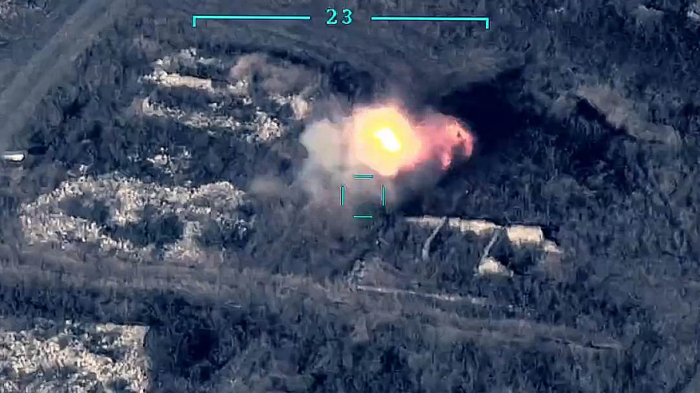The clashes between Azerbaijan and Armenia, which began on September 27, look larger than the ones which took place in July 2020 and April 2016.
The current escalation is the most serious since the 1992-1994 war. Both countries seem determined to continue fighting. Yerevan imposed martial law and announced a general mobilization. Baku also introduced martial law, but announced a partial mobilization. In fact, we are talking about a full-scale war — battles are being fought in all directions of the Karabakh conflict zone.
Earlier, the Azerbaijani Defense Ministry stated that the Armenian armed forces fired at settlements on the contact line in Karabakh, and there have been civilian deaths. According to the Armenian Defense Ministry, Karabakh "was subjected to air and missile attacks," and the Armenian side shot down two Azerbaijani helicopters and three drones.
There are casualties on both sides. According to official information from the Armenian side, so far 31 Armenian servicemen were killed and over 200 wounded. The Azerbaijani side, in turn, reported 19 injured civilians as a result of shelling from the Armenian side.
The theaters of military operations are mainly Jabrayil, Fizuli, Agderin regions. According to Azerbaijan's Ministry of Defense, as a result of the counter-offensive operation, seven villages of Fizuli and Jabrayil regions and a number of strategic highlands such as the Murovdag peak were returned to the control of the Azerbaijani army.
International reaction was not long in coming. Numerous organizations and countries have expressed concern and hoped that the two parties could cease fire.
UN Secretary-General António Guterres called on Yerevan and Baku to immediately stop fighting, reduce tensions and return to negotiations. The Russian Foreign Ministry called on both parties to immediately cease fire and begin negotiations to stabilize the situation. China hopes that Armenia and Azerbaijan will show calmness and restraint in the face of the latest aggravation in Nagorno-Karabakh and will be able to resolve differences politically. U.S. President Donald Trump also commented on the situation, saying that Washington is closely following the latest developments. Turkey and Pakistan strongly supported Azerbaijan in the conflict and condemned Yerevan for violating the ceasefire. Iran has expressed its readiness to provide mediating assistance in resolving the Karabakh conflict.
How can a conflict develop?
The first scenario, which is the most likely, is the suspension of hostilities due to pressure from third parties who do not want escalation. In this case, the clashes will continue for several days and Azerbaijan will restore control over part of Nagorno-Karabakh and part of the territory around it.
The second less likely scenario is that the conflict could get out of control and escalate into a regional war. This can only happen in the case of direct intervention by Turkey, followed by Russia. The chances are small that Russia will enforce military intervention in the Armenian-Azerbaijani conflict because firstly, Russia recognizes, together with all other UN countries, that Nagorno-Karabakh is a territory of Azerbaijan; secondly, Russia has good relations with Azerbaijan; thirdly, Russia is the co-chair of the Organization for Security and Co-operation in Europe (OSCE) Minsk Group for the settlement of the Nagorno-Karabakh conflict, therefore it cannot openly take sides.
In general, Transcaucasia is one of the most explosive regions in Europe. The unresolved Nagorno-Karabakh conflict is constantly escalating, and the Georgian-Abkhaz and Georgian-South Ossetian conflicts remain in a more stable but unresolved state.
However, the Azerbaijani-Karabakh conflict is much more explosive. This was demonstrated by the April 2016 war, as well as by the ongoing arms race between Armenia and Azerbaijan.
The clashes cannot go on forever. Legal and political steps to resolve the conflict should be based on the norms and principles of international law, UN Security Council resolutions, relevant documents and decisions of the OSCE and other international organizations. In this regard, the UN is assigned an important role in the settlement of the territorial issue between Armenia and Azerbaijan.
Seymur Mammadov is the director of the international expert club EurAsiaAz and editor-in-chief of Azerbaijan news agency Vzglyad.az. The article reflects the author's opinions, and not necessarily the views of CGTN.
Read the original article on news.cgtn.com.
More about: Azerbaijan Armenia
















































